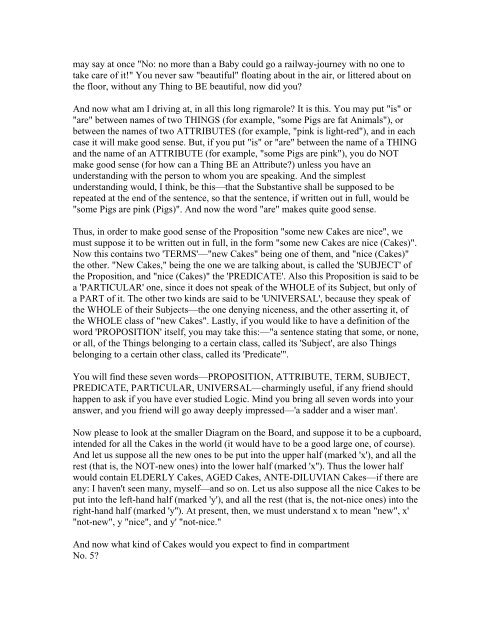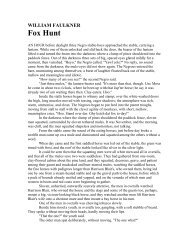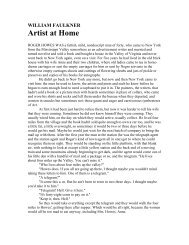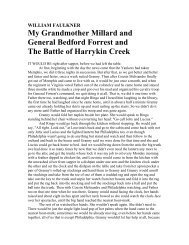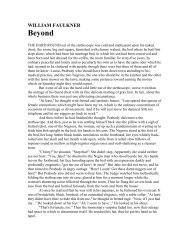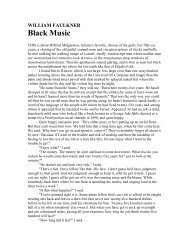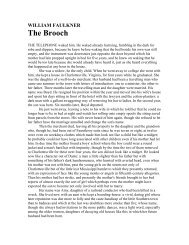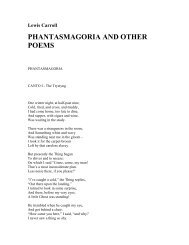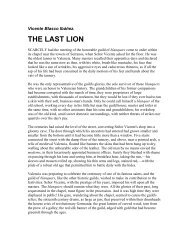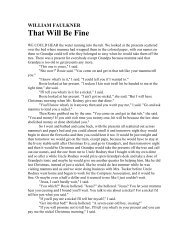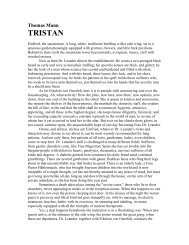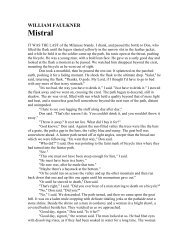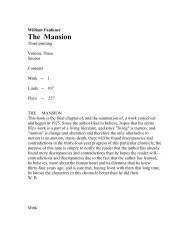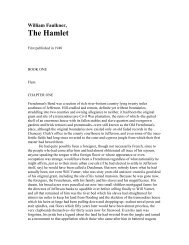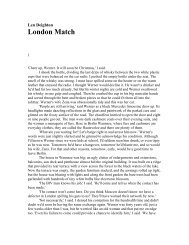Lewis Carroll, The Game Of Logic â WordPress.com - literature save 2
Lewis Carroll, The Game Of Logic â WordPress.com - literature save 2
Lewis Carroll, The Game Of Logic â WordPress.com - literature save 2
- No tags were found...
Create successful ePaper yourself
Turn your PDF publications into a flip-book with our unique Google optimized e-Paper software.
may say at once "No: no more than a Baby could go a railway-journey with no one totake care of it!" You never saw "beautiful" floating about in the air, or littered about onthe floor, without any Thing to BE beautiful, now did you?And now what am I driving at, in all this long rigmarole? It is this. You may put "is" or"are" between names of two THINGS (for example, "some Pigs are fat Animals"), orbetween the names of two ATTRIBUTES (for example, "pink is light-red"), and in eachcase it will make good sense. But, if you put "is" or "are" between the name of a THINGand the name of an ATTRIBUTE (for example, "some Pigs are pink"), you do NOTmake good sense (for how can a Thing BE an Attribute?) unless you have anunderstanding with the person to whom you are speaking. And the simplestunderstanding would, I think, be this—that the Substantive shall be supposed to berepeated at the end of the sentence, so that the sentence, if written out in full, would be"some Pigs are pink (Pigs)". And now the word "are" makes quite good sense.Thus, in order to make good sense of the Proposition "some new Cakes are nice", wemust suppose it to be written out in full, in the form "some new Cakes are nice (Cakes)".Now this contains two 'TERMS'—"new Cakes" being one of them, and "nice (Cakes)"the other. "New Cakes," being the one we are talking about, is called the 'SUBJECT' ofthe Proposition, and "nice (Cakes)" the 'PREDICATE'. Also this Proposition is said to bea 'PARTICULAR' one, since it does not speak of the WHOLE of its Subject, but only ofa PART of it. <strong>The</strong> other two kinds are said to be 'UNIVERSAL', because they speak ofthe WHOLE of their Subjects—the one denying niceness, and the other asserting it, ofthe WHOLE class of "new Cakes". Lastly, if you would like to have a definition of theword 'PROPOSITION' itself, you may take this:—"a sentence stating that some, or none,or all, of the Things belonging to a certain class, called its 'Subject', are also Thingsbelonging to a certain other class, called its 'Predicate'".You will find these seven words—PROPOSITION, ATTRIBUTE, TERM, SUBJECT,PREDICATE, PARTICULAR, UNIVERSAL—charmingly useful, if any friend shouldhappen to ask if you have ever studied <strong>Logic</strong>. Mind you bring all seven words into youranswer, and you friend will go away deeply impressed—'a sadder and a wiser man'.Now please to look at the smaller Diagram on the Board, and suppose it to be a cupboard,intended for all the Cakes in the world (it would have to be a good large one, of course).And let us suppose all the new ones to be put into the upper half (marked 'x'), and all therest (that is, the NOT-new ones) into the lower half (marked 'x''). Thus the lower halfwould contain ELDERLY Cakes, AGED Cakes, ANTE-DILUVIAN Cakes—if there areany: I haven't seen many, myself—and so on. Let us also suppose all the nice Cakes to beput into the left-hand half (marked 'y'), and all the rest (that is, the not-nice ones) into theright-hand half (marked 'y''). At present, then, we must understand x to mean "new", x'"not-new", y "nice", and y' "not-nice."And now what kind of Cakes would you expect to find in <strong>com</strong>partmentNo. 5?


